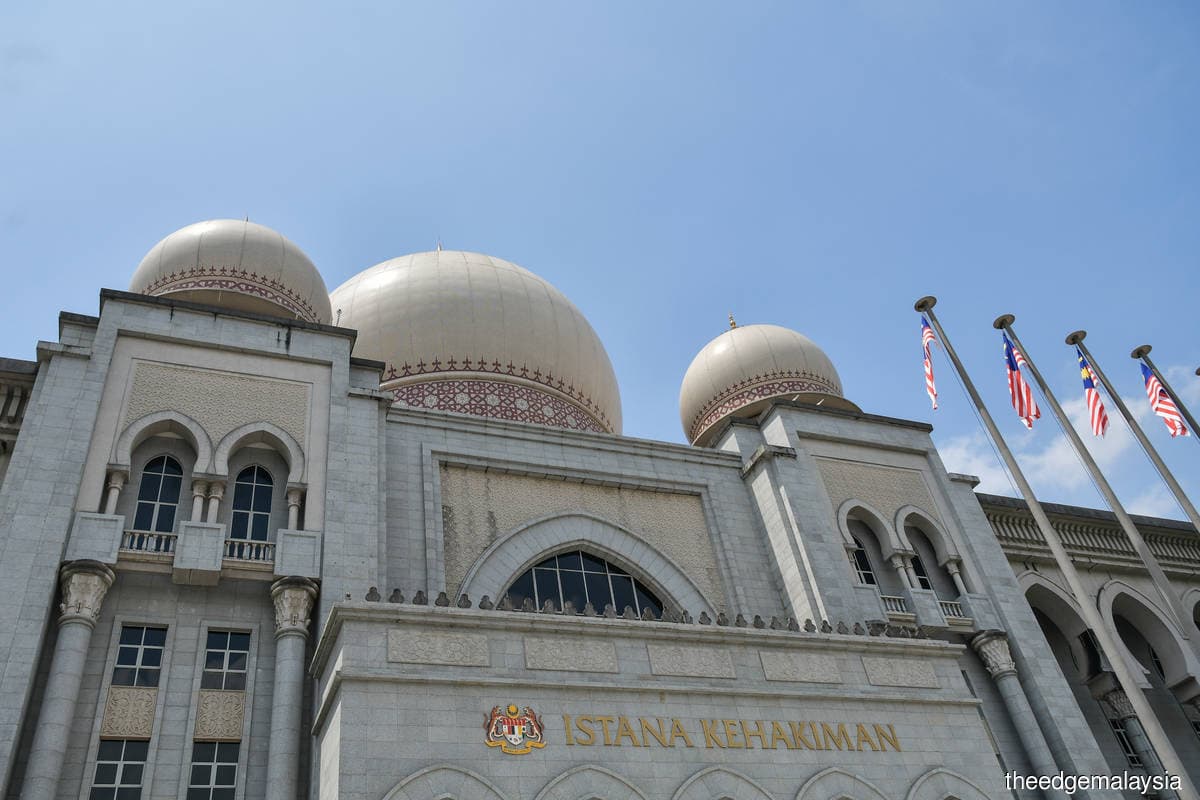
- One of the questions is: As the court had ruled the government had taken the land unlawfully and the landowner is entitled to possession of the land, does Article 13 permit the government to keep the land by the payment of compensation?
PUTRAJAYA (July 22): Semantan Estate (1952) Sdn Bhd, the company embroiled in the long-standing ‘Duta enclave’ dispute, has posed 26 questions of law to the Federal Court, as it seeks the court's leave to appeal the Court of Appeal's decision in the case.
The notice of motion, filed via the company’s solicitors Messrs Chooi & Co, is understood to have been served on the Attorney General's Chambers on Monday.
Besides seeking leave, Semantan Estate, which has gone under voluntary liquidation, is also seeking a stay of the Court of Appeal's decision, which included an order for the High Court to assess the compensation to be paid by the government over the illegal acquisition of land based on the 1956 market rate with 6% annual interest until payment.
The notice of motion sighted by The Edge was supported by an affidavit by the company's liquidator Dr Jim Lai Chee Chuen, in which he asserted that the leave questions fulfil the requirement under Section 96 (b) of the Courts of Judicature Act 1964 as they affect Article 13 of the Federal Constitution concerning rights to property and the validity of two pre-Merdeka laws, namely Section 29(1)(b) Government Proceedings Act 1956 and Section 8 Specific Relief Act 1950 (SRA).
Lai also claimed that the appellate court had made an error in law in its decision last month, which if uncorrected, would stand as an erroneous precedent and violate the sanctity of the apex court's decisions.
‘Company not entitled to land title’
In the decision, the court had allowed the government’s appeal and ruled that Semantan Estate is not entitled to the land title.
The three-member bench, comprising Datuk Lee Swee Seng, newly elevated Chief Justice Datuk Wan Ahmad Farid Wan Salleh and Datuk Azimah Omar, also unanimously dismissed Semantan Estate's appeal to acquire the land and its buildings.
Wan Ahmad Farid, in his supporting judgment to Lee's main judgment, noted that the 2009 High Court decision by then judicial commissioner Zura Yahya that ruled that the government had trespassed on the land, did not make any order for the impugned land to be transferred to Semantan Estate.
“There is no evidence before this court that Semantan Estate had sought clarification from the learned JC as to whether the impugned land ought to be transferred and registered by the Federal Land Commissioner to Semantan Estate as a consequential order.
“In short, there was no attempt made to ‘work out’ the order so as to give effect to the initial order. It is to be recalled that the ‘liberty to apply’ rule for consequential order is implied in every court order. Semantan Estate did not exercise this right at the material time,” the newly appointed CJ said.
The 263.272-acre land was acquired in 1956 and after a long-standing legal battle, Zura’s decision that the government had trespassed was upheld by the Court of Appeal and Federal Court in 2013.
The land currently houses various government buildings, including the National Examination Syndicate, National Archives, Inland Revenue Board, Malaysia Anti-Corruption Commission Academy, Institute of Islamic Understanding Malaysia, as well as the Tun Razak hockey stadium.
Questions of law
The 26 questions of law cover several areas, including Article 13 (right to property questions, alteration of a superior court order, questions relating to Government Proceedings Act 1956 (GPA) and Specific Relief Act 1950), Section 8 of the SRA (specifically on whether a return possession of land or transfer of land can be made by government), and adequate compensation questions.
The questions include:
- As the court had ruled the government had taken the land unlawfully and the landowner is entitled to possession of the land, does Article 13 permit the government to keep the land by the payment of compensation?,
- Does Article 13 permit the court to order compensation for the compulsory taking of land from a landowner where it has been determined that there was non-compliance with the applicable law for compulsory acquisition?,
- Does Section 29(1) (b) of the GPA apply to proceedings seeking prerogative relief such as a mandamus to an order under Section 417 of the National Land Code to give effect to a judgments against the government?,
- Is Section 29(1) (b) unconstitutional and violate Article 13, if used to prohibit and bar the court from granting a mandamus order (to compel) an order under Section 417 of the National Land Code o cause the registration of and transfer of the legal title, and return possession of land. to the lawful landowner when the court declared the land has been unlawfully taken by the government?,
- Is an order of ‘adequate compensation’ based on market value prevailing as of December 1956 inherently unjust and oppressive?, and
- Where it has been declared by a court that a landowner retained its beneficial interests in land does this mean the landowner is only entitled to the benefits and profits from the land to the exclusion of return of the legal title and possession of the land?
Does Malaysia have what it takes to become a Blue Zone, marked by health and longevity? Download a copy of EdgeProp’s Blueprint for Wellness to check out townships that are paving the path towards that.






